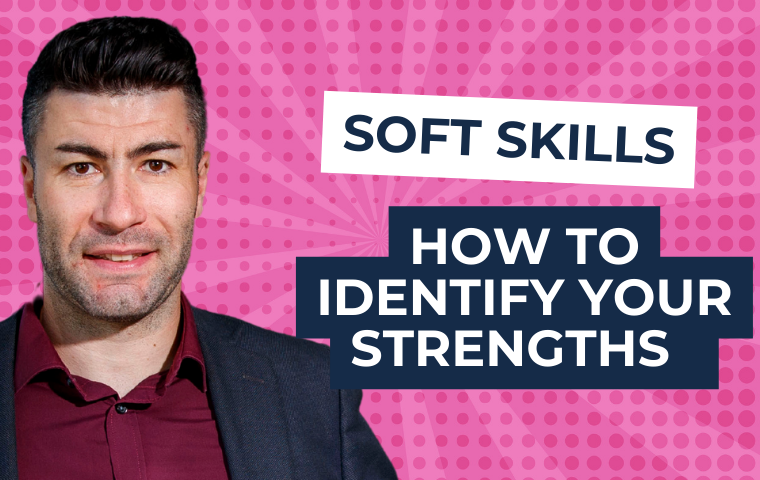Showcase The Soft Skills Employers Look For
27th November 2023
by Cammy Keith
As a positive person who thrives working in cohesive teams, office-based and sporting ones, I’ve been acutely aware of the power of soft skills for a long time.
I find myself talking about these transferable skills more and more in my day-to-day recruitment conversations because they are increasingly valued by employers. If you want to know what soft skills are and how to identify them visit my previous blog.
Hard skills can be assessed through qualifications and tests, and the successful application of your hard skills can be illustrated in your CV through specific achievements, milestones, and targets.
Conversely, soft skill strengths are hard to measure or quantify and they are subjective too, for instance, “effective proactivity” can mean different things to different people depending on the work situation, previous experience, and individual personalities.
Choose job-relevant soft skills to showcase in your CV
Your secret weapon is the job description.
It’s important to tailor your CV specifically for each job because it strengthens your application, this goes for your soft skills too.
Read the job description carefully and list all the required skills into 2 categories: soft skills and hard skills. If you are unsure this comprehensive list will help you identify the soft skills.
For example, I’m recruiting for an Electrical Maintenance Technician and the job description includes the requirements for these soft skills:
- Effective communication and interpersonal skills.
- Ability to work on own initiative and within a team.
There are 4 soft skills to include in your CV to meet the requirements for the job.
Where to include soft skills in your CV
The soft skills listed above are from a real job description, but you’d be forgiven for thinking that they are generic and that anyone could add these skills to their CV.
Listing them in your CV doesn’t make them true. You need to provide evidence that demonstrates a track record of using a particular skill or skillset. There are a few ways I recommend including soft skills in your CV:
- Within your personal statement.
- As bullet points in the dedicated skills/core competencies section.
- To explain achievements and responsibilities in your employment history.
Follow the STAR method when including your skills in the personal statement and employment history sections. Describe a Situation – Task – Action – Result.
Here’s an example:
Electrical Maintenance Technician, Company ABC June 2021 – August 2022
Mitigated disruption during a significant power outage. Through effective communication and interpersonal skills, I coordinated multi-team efforts and expedited the delivery of critical repair components which minimised production loss.
- A cover letter is a good place to highlight relevant soft skills, for instance, if you specifically want to draw the recruiter’s attention to your achievements at Company ABC you could mention them in the cover letter as well as your CV.
- Referees can also be helpful if they have personal knowledge of your soft skills.
Convey your soft skills during the job interview
You connected your skills with those required for the job in your CV and now the interviewer will want to delve deeper during a good conversation.
Adopt the STAR method again and incorporate more relevant detail and context for each of your soft skill achievements.
Role-playing before going to the interview gives you a chance to test out what you want to say and the time to structure a clear answer. For more information on the STAR technique and preparing for an interview download our guide.
Active listening is a simple but oh-so-important soft skill that can significantly impact your interview success. By understanding what the interviewer is asking you can respond thoroughly, give a better answer, and begin to build rapport.
Develop your soft skills
It is a good idea to look at what you can do to develop your soft skills for long-term career progression.
Perform some self-assessment to recognise your transferable skills and decide which areas to develop further. Build the development of specific soft skills into your objectives, for example, if you want to improve your leadership skills then set an objective that requires you to step up and manage a project, small team, or initiative.
Personally, I've found asking for feedback and taking time to reflect on that feedback has made me more aware of how my actions affect others, and working with a coach has provided insight to help me mature my soft skills through their guidance, alternative perspective, and signposting online resources - drop me a DM if you'd like a coach recommendation ☺









